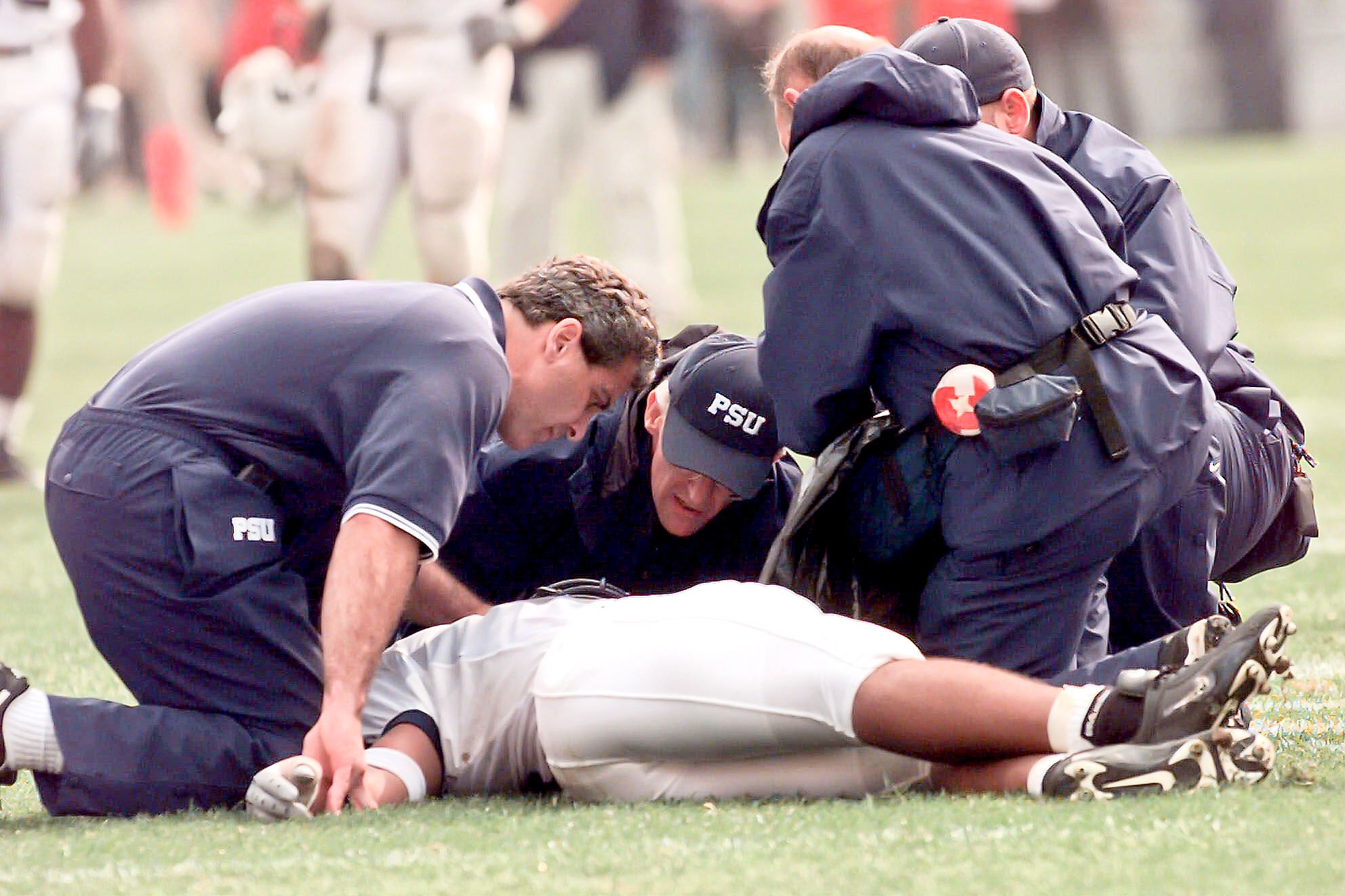Now a politician in New Jersey, Taliaferro eventually and miraculously recovered and regained the ability to walk, thanks in some part to the care he received immediately after his injury from the Nittany Lions medical staff.
As both a Penn State graduate and state legislator, that moment and its aftermath always stuck with Jake Corman.
“They saved his life,” Corman said. “I don’t think that’s overstating it.”
What both captivated and bothered Corman, however, was the realization that what was possible in Ohio was not in his home state of Pennsylvania, where visiting team doctors couldn’t care for their players without a state medical license.
Thanks to two laws on which Corman was the prime sponsor, though, that’s no longer the case.
Beginning Thursday, team physicians who are licensed in good standing in their home state and have an agreement with a sports team to provide care can treat their own players while they compete in Pennsylvania.
“It’s a long time coming,” said Dr. Tony Yates, a Steelers team physician. “As a physician, you treat your patients and you treat your players. They’re two different words both starting with the letter P, but it stands for the same relationship. That relationship still exists when you cross state lines.”
The laws, Senate Bills 685 and 686, are amendments to Pennsylvania’s Medical Practice Act of 1985 and Osteopathic Medical Practice Act of 1978, respectively. While team doctors can treat players in the organization in which they’re employed, they cannot provide care or consultation to any Pennsylvania resident other than those permitted by the legislation. The exemption is also limited to 10 days in duration per event.
While the laws will undoubtedly make a difference for out-of-town team physicians, some doctors wonder how far-reaching their impact will be, largely because of structures and practices already in place in the different professional leagues.
Last year, the NFL created the position of visiting team medical liaison (VTML), an emergency local physician licensed to practice medicine and provide controlled substances to players. In baseball, where an onerous travel schedule usually prevents medical personnel from going everywhere with the players, there’s open communication and trust between doctors for the different teams, allowing a visiting player to be treated properly even if his own doctors aren’t present.
This reciprocity was seen last year, when St. Louis Cardinals outfielder Stephen Piscotty suffered significant head trauma in a gruesome outfield collision at PNC Park. He was helped by on-site physicians and rushed to a local hospital, where he received diagnostic tests, was cleared by neurologists, stayed overnight and rejoined his teammates the following day.
In short, even if their own doctors couldn’t treat them, it wasn’t as if injured professional players were left to fend for themselves.
“I don’t think it’s going to have that much of an impact, to be honest with you,” said Pirates medical director Dr. Patrick DeMeo. “I think more in the contact sports it might, but at the end of the day, if anybody is significantly injured, we still have to work together.”
Nonetheless, there was a need for both uniformity and a clear legal distinction so that athletes could receive the best and most familiar medical attention possible, particularly in the college and high school ranks.
“While that practice has been happening for decades, there really wasn’t a law allowing it,” said Dr. Scott Shapiro, president of the Pennsylvania Medical Society.
The need for the laws may have not been overly pressing, but to those drafting and voting on them, they provided a common sense solution to a possible gap in medical coverage. The bills faced virtually no opposition in the legislative process, passing in both the state house and senate without a single dissenting vote.
Pennsylvania became the 22nd state to allow doctors to practice in their state in some capacity without a medical license. Corman hopes and believes that states without such laws will follow the lead of Pennsylvania and many others on a topic that is more of an important clarification than a potential issue.
“The doctor who works with the team and sees these guys on a regular basis certainly has the best knowledge of their care,” he said. “So to prevent them from being able to treat them, we didn’t think it was very smart.”
By Craig Meyer of the Post Gazetter:cmeyer@post-gazette.com and Twitter @CraigMeyerPG.
